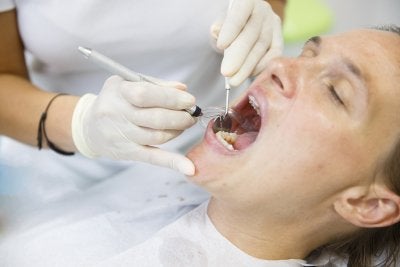It’s important to visit your dentist in Bel Air, MD, regularly for routine dental care, including professional dental cleanings and exams. This will give your dentist the opportunity to catch early warning signs of dental problems, such as early warning signs of gum disease . Here is a guide to spotting the signs of gum disease, so that you can quickly make an appointment at your dental clinic if necessary.

Recognizing Gingivitis, the First Stage of Gum Disease
Gingivitis is the first stage of gum disease, but its progression can be slowed or stopped with proper dental care. The warning signs of gingivitis include mild to moderate inflammation of the gums. Your gums may be red, swollen, and may bleed easily. If your dentist does not quickly treat gingivitis, it can progress to more serious stages of gum disease. Your dentist will determine the most appropriate dental care necessary for your symptoms. This may include daily brushing and flossing, using specialized prescription dental care products, and visiting your dentist regularly for dental cleanings.
More Severe Symptoms of Periodontal Disease, Also Known as Gum Disease
Without regular, daily dental care, gingivitis may progress to more serious stages of periodontal disease, which is also called gum disease. Periodontal disease causes the gums to begin to recede or pull away from the teeth. This creates pockets in the gums that can become infected with bacteria. As the infections spreads, your risk of tooth loss greatly increases. You cannot treat periodontal disease at home, but instead must visit a dentist for specialized dental care.
Signs of Advanced Periodontitis
If gum disease is untreated, it will progress to a condition known as advanced periodontitis. In this stage of gum disease, your dentist may have to perform tooth extractions to remove damaged or diseased teeth. Your tooth will then have to be replaced with a dental implant or dental bridge. Your dentist will first attempt to treat advanced periodontitis using a non-surgical dental care method known as scaling and root planing. This is basically a very intense, thorough dental cleaning during which the dentist removes plaque, tartar, bacteria, and infection from your teeth and gums. If this is ineffective, your dentist will recommend surgical dental care.

